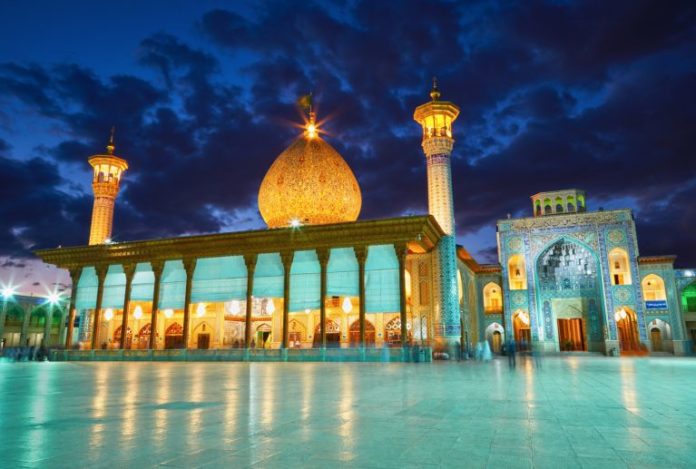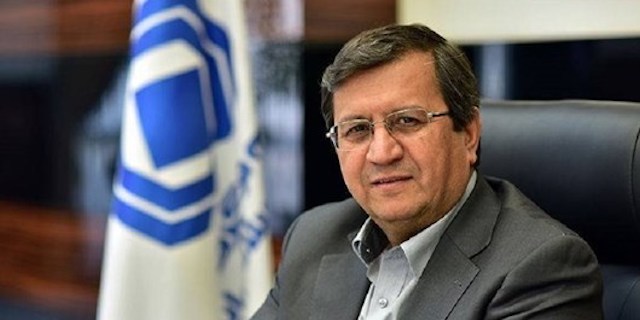
According to regional reports, the Central Bank of Iran (CBI) is planning to allow licensed cryptocurrency mining as long as operations are charged for electricity based on the price of export. The CBI governor, Abdol Nasser Hemmati, explained that mined cryptocurrencies should flow back into the Iranian economy.
Also read: Bitcoin Miner Recounts Struggle to Obtain Cheap Iranian Power
Chinese Miners Negotiate With Iranian Leaders to Set Up Mining Operations in the Free Trade Zones
In December 2018, there were reports of miners stemming from China, Spain, Ukraine, Armenia, and France to mine bitcoin in the oil-rich nation of Iran. The Middle Eastern country has extremely cheap electricity rates, and in April there were even more stories of Chinese miners heading to Iran for extremely affordable electric prices at $0.006 per kilowatt-hour (KWh). Then, at the end of June, the spokesperson for Tavanir, an Iranian state-operated grid entity, said that electrical consumption had spiked by 7% in comparison to the previous year. Tavanir executive Mostafa Rajabi Mashhad further blamed illicit cryptocurrency mining operations for the country’s increased electrical consumption. Rajabi told the press that other Iranian provinces were having difficulties due to the mass electrical consumption and emphasized that “illegal bitcoin miners will be identified and their electricity will be cut.”

Following Rajabi’s statements, bitcoin miners defied his warning and Iranians shared pictures of a bitcoin mining mosque. The regional publication Iran Daily reported that there were roughly 100 unauthorized bitcoin mining sites located in various provinces. The Tabnak website claims 1,000 bitcoin mining machines were seized by Iranian law enforcement on June 28. “Two of these bitcoin farms have been identified, with a consumption of one megawatt,” a Tavanir official, Arash Navab, told state television. Bitcoin mining has become a very popular vehicle to escape sanctions across many provinces in Iran. “Everyone’s talking about Bitcoin and how to get it,” said Mahsa Alimardani, an Iranian native and researcher at the Oxford Internet Institute noted to regional reporters.
Then on July 10, Mohammad Sharqi, managing director of Iran Blockchain Association, told the local press that Chinese digital currency miners have asked Iranian officials to let them set up facilities in the country. Official discussions have been initiated and miners would like to operate in the Iranian free trade zones in Anzali, Kish Island, Qeshm Island, Chabahar, Arvand, and Aras. “The Chinese have made requests through official channels for cryptocurrency mining in the free zones,” Sharqi explained to the media. CBI’s deputy governor for new technologies, Nasser Hakimi, explained the same day that the local anti-money laundering authority had concerns with virtual currency trading. Sharqi thinks the stories of extreme electrical consumption have been exaggerated. Despite government warnings, according to an Iranian electrical industry spokesman, there are more than 148,000 machines in the country.
Mining that crypto! 1000 #Bitcoin mining machines seized by authorities in Yazd, #Iran pic.twitter.com/sDYPFPhYiK
— RT (@RT_com) June 29, 2019
Central Bank of Iran Governor: ‘Bitcoin Mining Will Be Authorized if Miners Pay Export Prices for Electricity and Help Feed Funds Back Into the Iranian Economy’
Abdol Nasser Hemmati, the CBI governor, explained on July 10 that the government will authorize bitcoin mining in Iran even though Iranian bureaucrats have not finished regulating cryptocurrency trade. There are two caveats to the deal, Hemmati told the press, which will have to be followed strictly if mining operations are initiated in Iran. “Mining of the international digital currencies should be done based on the price of electricity for export,” Hemmati expounded. “What’s more important is that these mined currencies should be fed back to the national economic cycle,” the CBI governor added.

Hemmati warned the CBI would not tolerate a cryptocurrency that affects the price of the Iranian rial or gold. Reports also detail that Iranian law enforcement have already started to bust operations using factories, mosques, and utility service areas that benefit from extremely cheap electricity rates. At the export rate that’s charged to neighboring countries, bitcoin miners would have to pay $0.07 to $0.10 per KWh. The news outlet Presstv reports that the utility service area rates in Iran can be as low as $0.05 per watt. Electricity prices in Iran can be even lower in places like greenhouses and mosques for $0.006 per KWh as long as mosque leaders don’t mind breaking fatwa against the use of their subsidized electricity.
Iranian Leader Claims U.S. Congress, Donald Trump and Sanctions Have Been Hindering Iran’s Cryptocurrency Progress
Even at $0.13 per KWh, there are more than 40 SHA-256 machines that are still very profitable at today’s BTC prices. In some countries, electricity is higher or even double $0.13 per KWh so Iran’s power prices are quite affordable even with the export rate tacked on. Saeed Zarandi, the Iranian assistant minister of industry, trade and supply revealed to the press that the U.S. has been hindering Iran’s cryptocurrency progress.

Zarandi said that the U.S. Congress under the Trump administration has been harsh toward the country. Iran and the U.S. have been at odds again lately as the country’s military shot down an American drone and told the press it was in Iran’s no-fly zone. The U.S. and President Donald Trump claim the aircraft was in international airspace and not in Iran’s territory. Since then many observers have been worried that the U.S. may spark a war with Iran or vice versa. Zarandi asserted that members of the U.S. Congress believe cryptocurrencies could be used in Iran to avoid sanctions.
One specific set of sanctions called the Blocking Iran Illicit Finance Act is comprised of rules that make it hard for international companies to do business with Iranian financial institutions. H. R. 7321 details the expansion of prohibitions on correspondent accounts or payable-through accounts for foreign financial institutions. This includes banks that facilitate transactions or provide financial services for Iranian financial institutions. H. R. 7321 also displays a set of three rules to follow when it comes to Iranian-based digital currencies.
- Sanctions with respect to foreign persons that engage in significant transactions for the sale, supply, or transfer to Iran of significant goods or services used in connection with the development of Iranian digital currency.
- Sanctions with respect to foreign persons that conduct or facilitate significant transactions related to the purchase or sale of Iranian digital currency or maintain significant amounts in Iranian digital currency.
- Report on the progress of the Government of Iran in creating a sovereign cryptocurrency.
The latest rules against an Iranian digital currency also follow the U.S. imposed sanctions against cryptocurrencies from Venezuela and more recently Cuba. Moreover, in November 2018 the American government convinced Swift to cut Iran off from the global financial system which pushed Iranian college students toward cryptocurrency to pay for books and online tuition. Furthermore, reports from regional news outlets in China claim that Iranian cryptocurrency miners have been scrambling to buy mining rigs from the mainland. With the CBI green-lighting bitcoin mining in the country, the inflow of funds could give Iran an edge over the imposed U.S. sanctions. With rules like the Blocking Iran Illicit Finance Act and major payment processors like Swift cutting Iranian banks off, the country may be forced to use a borderless currency.
What do you think about Iran’s central bank planning to approve authorized bitcoin mining in the country as long as miners pay export prices for electricity? Let us know what you think about this subject in the comments section below.
Image credits: Shutterstock, Presstv, Iran Daily, Tabnak, and Pixabay.
The post Miners Flock to Iran Where Bitcoin Mining Is Set to Be Sanctioned appeared first on Bitcoin News.

Bitcoin.com is author of this content, TheBitcoinNews.com is is not responsible for the content of external sites.
Our Social Networks: Facebook Instagram Pinterest Reddit Telegram Twitter Youtube










